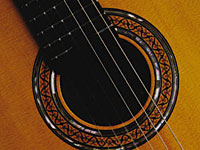Music Pedagogy - MUSCH13458
Stream Summary
Faculty: ARTSC - Faculty of Arts&Social Science
School: School of the Arts and Media
Contact: sam@unsw.edu.au
Program: 3458 - Music / Advanced Science
Award(s):
Bachelor of Music (Major)
View stream information for previous years
Stream Outline
Music Pedagogy is supported by a variety of large and small, Western and Non-Western Music ensembles as well as extensive opportunities for developing musicianship, critical skills, theoretical knowledge, and musical creativity. Music Pedagogy enables students to acquire comprehensive knowledge of music from various styles, genres and cultures while preparing them for professional work in areas as diverse as studio music teaching, music performance, practice-based research, or further study in classroom music education. Students complete courses in musicology, musicianship and performance, as well as, a Professional Practice course and prescribed stream electives and free music electives. A Directed Study course gives the student the opportunity to engage in an intensive research project or community-based project under supervision.
The Music Pedagogy Stream is one of four streams within the Bachelor of Music (UNSW BMus) four-year, full time pass degree. Specific performance requirements will apply for admission to this Stream.
Graduate Attributes
- The skills involved in scholarly enquiry, such as information literacy, critical analysis, and writing.
- An in-depth engagement with discipline-specific knowledge, such as musicological method and educational psychology, instrumental or vocal performance, score reading, inner hearing, repertoire knowledge and compositional style.
- Engagement with music in its interdisciplinary context through the study of music history, music ethnography/anthropology, and music technology.
- Capacity for analytical and critical thinking and for problem-solving through studies in music performance or composition, pedagogical methods, and academic tasks involving theoretical issues.
- Information literacy - the skills to locate, evaluate and use relevant information.
- The capacity for enterprise, initiative and creativity, developed primarily through opportunities for performing and composing, and being involved in concert organizing and musical leadership.
- An appreciation of, and respect for, diversity through participation in and study of diverse musical practices and thinking.
- High levels of oral and written communication, supported with discipline-based forms of communication such as scores, music performance and recordings.
- Skills required for collaboration and contribution to the international community are developed through individual instrumental or vocal performance, composition, ensemble performances and the study of diverse musical styles and practices.
- Respect for ethical practice and social responsibility are fostered through links with the music industry and music communities and discussions of professional practices in theory and practice alike.
- The skills in planning, assessing and reporting for effective studio-based learning.
- Demonstrate an ability to adapt performance knowledge and teaching skills in diverse contexts.
- Identify and formulate solutions to pedagogical problems with intellectual and artistic independence.
- The capacity of creating and maintaining a safe and challenging music studio environment.
Stream Structure
Level 1
Core- MUSC1101 Music Reinvented (6 UOC)
- MUSC1602 M&S 1 (6 UOC)
- MUSC1603 M&S 2 (6 UOC)
- MUSC1604 Western Music: a Panorama (6 UOC)
- MUSC1701 Per Lab 1 (BMus) (6 UOC)
- MUSC1704 Per Lab 2 (BMus) (6 UOC)
Level 2
Core- MUSC2116 World Music (6 UOC)
- MUSC2602 M&S 3 (6 UOC)
- MUSC2603 M&S 4 (6 UOC)
- MUSC2701 Per Lab 3 (6 UOC)
- MUSC2702 Per Lab 4 (6 UOC)
- MUSC2802 Music Studio Teaching (6 UOC)
Level 3
Core- MUSC3701 Performance Laboratory 5 (6 UOC)
- MUSC3702 Performance Laboratory 6 (6 UOC)
- MUSC3803 Processes in Musical Performance (6 UOC)
- MUSC3804 Educating the Musical Novice (6 UOC)
Level 4 (Pass)
Core- MUSC4701 Performance Laboratory 7 (6 UOC)
- MUSC4702 Performance Laboratory 8 (6 UOC)
- MUSC4XXX Research-based Music Course (6 UOC)
- MUSC4XXX Practice-based Music Course (6 UOC)
- MUSC2604 Music History and Culture 1 (6 UOC)
- MUSC3601 Music History and Culture 2 (6 UOC)









